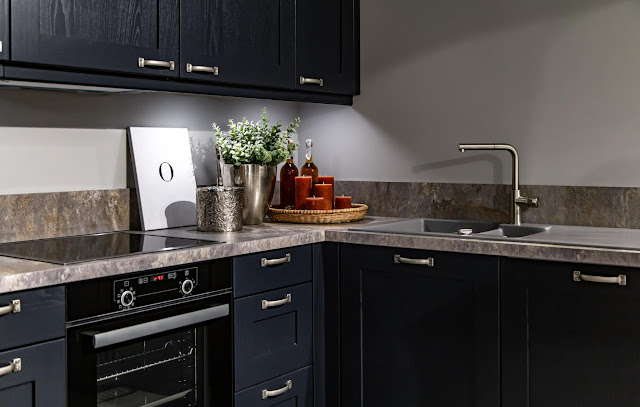Introduction-
Wars are said to be won and lost in the kitchen, so creating a space that's clean, and inviting – yet practical – holds significant importance. Between the aroma of baking, the chatter of family meals, and the meticulous preparation of a multitude of dishes, the kitchen benchtop is an unsung hero. Yet, our counters often bear the brunt of aggressive cooking and hurried clean-ups. This article aims to provide an overview of various benchtop materials, such as laminate, wood, stone, and stainless steel, and the best ways to care for, clean, and maintain them.
Choosing the Right Cleaning Agents and Tools
Maintaining the sheen and longevity of a kitchen benchtop requires meticulous attention to products and procedures. Poor decisions can lead to dull, damaged counters. Carefully selecting cleaning agents and tools prevent damage and ensures your benchtop looks fabulously pristine.
Consider environmentally friendly alternatives for potent cleaners, such as vinegar, baking soda, or citrus-based products. They're non-toxic and can be equally efficient in cleaning stubborn grime and stains. Plenty of Australian brands offer "green" cleaning products that work wonders on different surface types. It’s worth checking out Koala Eco and Orange Power for some sophisticated, safe, and sturdy cleaning options.
Break it Down: Cleaning Techniques for Different Benchtop Materials
Laminate Countertops
Laminate is a popular choice for those seeking versatile design options and durability. Cleaning is relatively simple; warm soapy water will do the trick for most spills. However, they tend to scratch easily and show up watermarks. Regularly wipe using a microfiber cloth to keep the surface shiny and avoid abrasive cleaners that can dull the finish.
Wooden Benchtops
Wood provides a warm, classic look to kitchens. However, it tends to be susceptible to water damage, stains, and warping over time. Regular oiling with food-friendly mineral oils brings out the wood's natural beauty and protects it from damage. Never let water stand on wooden surfaces; wipe spills immediately to avoid staining.
Stone Benchtops
Marble, granite, quartz - each stone has a unique natural beauty that elevates any kitchen. Stone surfaces are porous, so they should be sealed periodically to prevent stains. Use pH-neutral soap for regular cleaning and avoid acidic or abrasive cleaners that could dull their sheen.
Stainless Steel Benchtops
Stainless steel is robust, resistant, and genuinely timeless. It's typically easy to clean, but water spots and fingerprints can easily mar its brilliant finish. Use a soft cloth and warm, soapy water, wipe in the direction of the steel grain, and follow up with a dry cloth for a streak-free shine.
The Art of Stain Removal: Tackling Tough Stains
Even the most diligent cleaners will encounter some stubborn stains that refuse to budge. Oils build up over time, coffee feels at home, and red wine becomes an unwanted kitchen partner. Commit these lifesaving hacks to memory: lemon/white vinegar for coffee and tea, baking soda for wine, and dish soap for oils.
Regular Benchtop Maintenance: Tips and Tricks
Seal, polish, oil, repeat — the importance of regular maintenance for your kitchen benchtops cannot be overstated. It’s not enough to merely react when problems arise; prevention is key. Follow a regime that suits your material type: regular oiling for wood, sealing for stone, and shine upkeep for stainless steel and laminate.
Expert Insights: Q & A with a Professional Kitchen Cleaner
Having a chat with an expert, we've garnered some insider tips. The emphasis lies on speed (don't let grime get comfy!), regular maintenance, and knowing your material, "what works for stainless steel may wreak havoc on marble," our expert cautions.
Conclusion
Our benchtops are a pivotal part of our kitchen ecosystem. Understanding their unique cleaning and maintenance needs ensures they remain as appealing and efficient as they were on the day they were installed. It's time to roll up your sleeves, tap into these insights, and let your counters bask in their much-deserved limelight.


0 comments :
Post a Comment